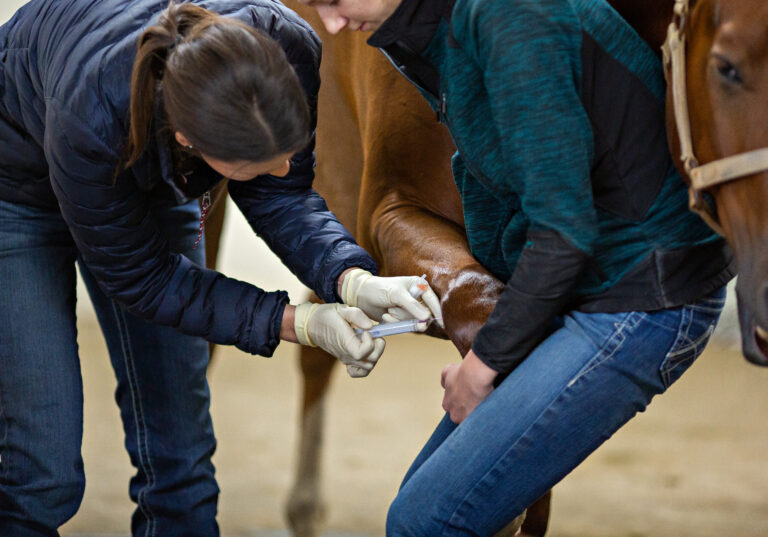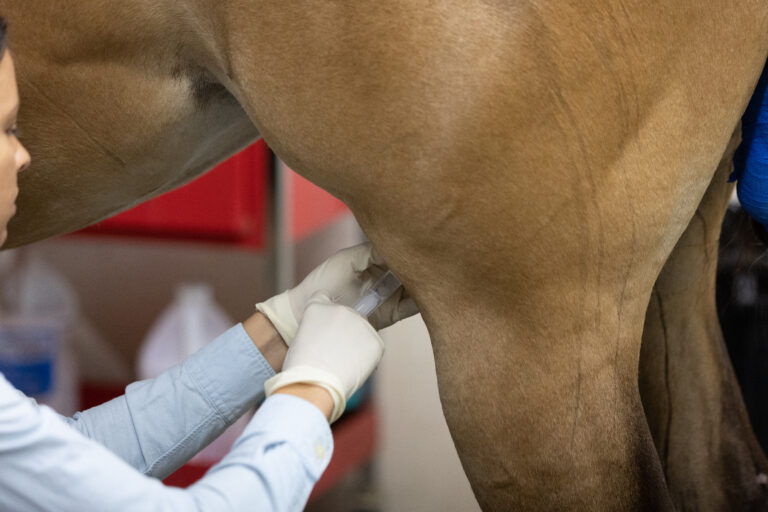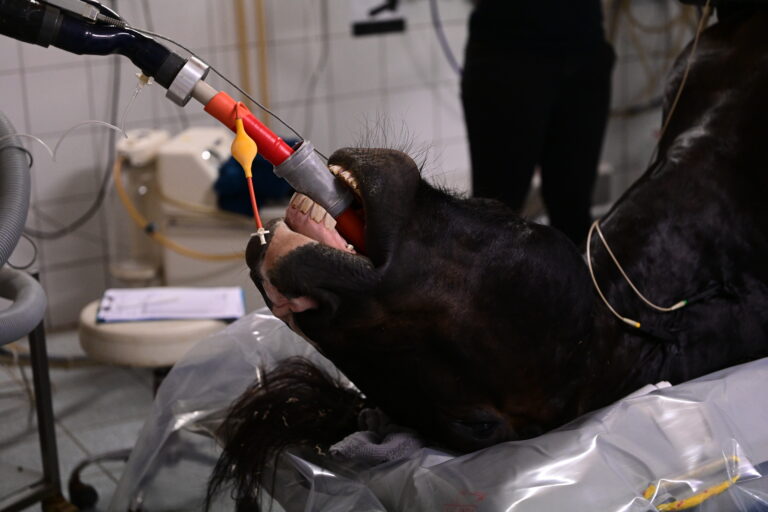
Weems and Stephens Equine Hospital, in Aubrey, Texas, recently made a bold statement about team culture and growth. The clinic shut its doors for an entire day, allowing all 40-plus veterinarians, vet techs, and support staff to participate in a conflict management workshop. Julie Settlage, DVM, MSc, Dipl. ACVS-LA, professional services veterinarian with Boehringer Ingelheim, provided the training as part of The Stable Life initiative.
Team Growth Through Self-Awareness
Hospital co-founder David Stephens, DVM, Dipl. ABVP, invited Settlage to do this daylong deep dive into conflict management after one of his associates saw her speak at an industry conference.
“We place a very high value on employee development, whether it be technical skills or personal skills,” he said. “The idea of her program intrigued me, and I thought it would be beneficial for all of our staff.”
Using both classroom-style and experiential learning techniques, she taught the team about the five conflict modes on the Thomas Kilmann Instrument and when each one, situationally, is likely to be ideal. The five modes are collaborating, competing, compromising, accommodating, and avoiding.
“All of us underutilize or overutilize one or more of these modes instead of utilizing all of them effectively,” Settlage explained. “As a result, we go into these conflict modes that aren’t appropriate for a given situation. We just do that because it’s comfortable.
“So, if I know how I engage in conflict or prefer to engage in conflict, and I know how my teammates engage in conflict, then that will help our relationship,” she continued. “We can potentially grow and use other methods of conflict in the appropriate situations instead of just my preference or their preference.”
Conflict management has practical implications not only among co-workers but also for interactions with clients and at home. After teaching the clinic staff about the different conflict styles, Settlage had them perform exercises in which she’d present a hypothetical situation or problem and ask the team to choose the appropriate conflict mode with which to solve it. Everyone in the group chose the conflict style with which they were most comfortable, with the avoidance mode being most overrepresented, said Settlage.
“Then we’d talk about their why behind that choice, and we’d talk about the situation using those attributes,” she explained. “What is their chosen style? Is it the right style, or should they have picked a different one? Why or why not?”
The Importance of Well-Managed Conflict in Equine Practice
Conflict training isn’t just useful for helping colleagues resolve disputes. Settlage sees it as critical to keeping equine veterinarians in a field they’re abandoning at alarming rates. According to Christina Maslach’s pioneering work on occupational burnout, individuals are at risk of burnout if they’re unsettled in one of six domains—one of which is community.
“I think part of being in a community is learning how to engage in what I call ‘wonderful conflict,’ because conflict makes us all better,” Settlage explained. “If it is well-managed, it actually doesn’t feel like the conflict that we all think about; it feels like teamwork. When you use the word conflict, you automatically think of a fight, and that’s not true. It’s just a difference of opinion and a difference of needs, or even an awareness of needs.”
Well-managed conflict also helps improve psychological safety in the workplace and allows teams to feel like they can accomplish anything, she added. “Veterinarians, technicians, and professionals can really thrive in those practices that embrace it.”
Settlage applauded Weems and Stephens Equine Hospital for canceling all nonemergency appointments and taking the day to provide its staff with conflict management training. “It shows their employees how valuable they take this and how much they appreciate their team’s growth in these spaces.”
“It was an invaluable day of training,” Stephens added. “The mind is like a parachute—it always works better when it’s open.”




